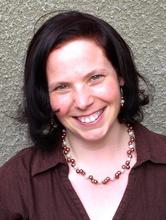 Agnes Bezzina, Teaching Fellow in social work in the School for Policy Studies, discusses her research on service user involvement of people with a disability.
Agnes Bezzina, Teaching Fellow in social work in the School for Policy Studies, discusses her research on service user involvement of people with a disability.
Parliamentary discussions last month featured an interesting debate on the setting up of a Sign Language Council to advise government on issues related to the development of Maltese sign language.
There was a level of excitement that Maltese sign language, the language of the deaf community in Malta, may receive deserved recognition.
Yet, there was also a sense of disillusion as questions arose concerning this council’s five-member composition, with a requirement for only one of these to be a deaf person.
How can this token representation be considered acceptable in Malta, one of the first countries to sign the UN Convention on the Rights of Persons with Disabilities? Should there not be a legal requirement for the council to be made up of a majority of deaf persons as experts of their language?
The Nothing About Us Without Us collective slogan advocated by people with disability worldwide and radically promoted in Malta at the turn of the millennium contributed to the interest in studying service user involvement (SUI) in social work.
Through my research, I tried to identify the major prerequisites for nurturing service user participation in social work education, policy and practice by using a mixed methods approach in my doctoral study entitled ‘Service user involvement in social work: emergent dynamics in the Maltese context’.
Initially, an online survey was undertaken with social workers in Malta, examining their attitudes towards SUI and their experiences of it. In the second phase, semi-structured interviews were conducted with social work senior managers, educators and policymakers, reviewing their understanding of SUI and its implementation at an organisational level.
Finally, semi-structured interviews were carried out with actively involved service users, exploring their conceptualisation of SUI and their involvement experience. One of the objectives of my study was to examine the nature and extent of SUI in the social sector.
The study exposed the lack of SUI in social work and services in Malta. Despite various conferences and seminars on the subject being organised by social work organisations, its implementation remains sparse.
While the majority of social workers (97.2 per cent) agreed that service user involvement is of value to the social work profession, 80.7 per cent believed that there was room for more contribution by service users in their particular agency or department.
An examination of the social and cultural factors that may impact on the development of SUI revealed three central factors: the smallness of Malta, the dominance of patronage and paternalism and the prevalence of charity and voluntarism.
An analysis of these features brought to light the importance of face-to-face personal relations within a small country. There were indications of the enduring nature of patronage systems highlighted by research in the 1960s, with evidence of patronage and paternalism also permeating service user relations. The charity model was still seen to prevail, although voluntarism was considered essentially desirable and deemed to differ from a patronising charity perspective.
This research also brought to light the difference in perspectives of service users and professionals in relation to SUI. Professionals generally adopt a consumerist perspective, one in which participation is outcome-oriented, has a functional purpose and in which there are no power considerations.
In contrast, service users advocate for a more democratic outlook to SUI, one that is motivated by principle, in which the participatory process itself is crucial and where the focus is on transforming power relations.
Interestingly, the disability sector emerged as an exemplar of SUI in the social sector. Advances in the 90s and the first decade of the new millennium saw individuals from a range of impairment groups, including physical and sensory impairments, as well as intellectual disabilities, being actively involved in various forums. This brings us back to the initial questions regarding the setting up of the Maltese Sign Language Council and the potential impact of not including – or, rather, excluding – people with disability in issues that relate to them.
My research revealed that it was generally the activism of individuals from select service user groups that generated the momentum for greater participation and influence. Participation gives rise to increased involvement and control.
Non-participation, however, results in powerlessness and an acceptance of the ‘observer’ status. This timely research challenges the authorities to reflect on the proposed minimal – arguably tokenistic – involvement of deaf persons on the Sign Language Council and to consider instead a genuine participation on this important body.
Only with such concrete measures will the Nothing About Us Without Us slogan translate into effective SUI that rebalances the power disparity between the social services bureaucracy and those whose well-being depends on it.
Agnes graduated from the University of Nottingham with a PhD in social work. Her degree was funded by the Strategic Educational Pathways Scholarship (Malta), which is part-financed by the EU Social Fund under Optional Programme II – Cohesion Policy 2007-2013, ‘Empowering people for more jobs and a better quality of life’. This was first posted on the Times of Malta.


